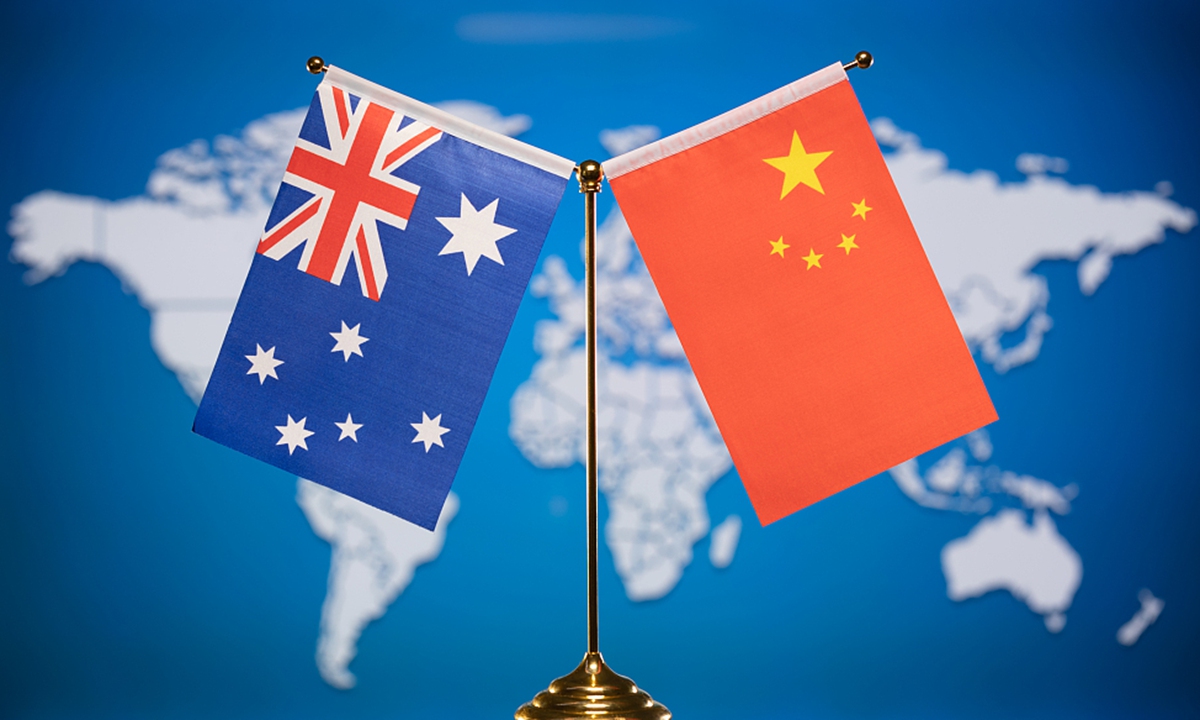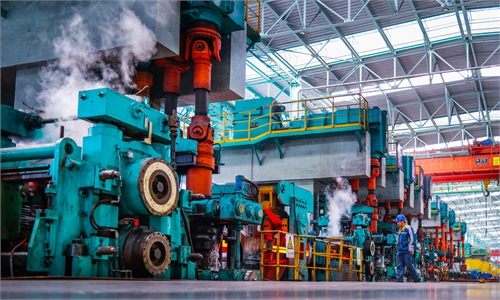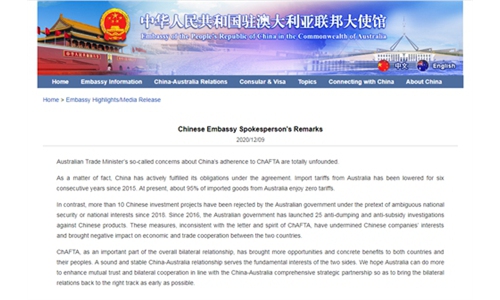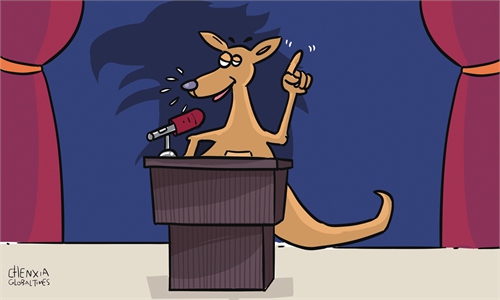COMMENTS / EXPERT ASSESSMENT
Who are Australia trade officials trying to fool with publicity stunt?

Photo: VCG
Australia appears to be pulling another publicity stunt. In a recent interview, the newly installed Australian Trade Minister Dan Tehan said that he had written a "detailed" letter to his Chinese counterpart in which he expresses hope that they could have a "constructive dialogue." A week or so later Tehan has started publically whining that he hasn't received a reply.
Such a narrative that China has purposefully ignored Australian officials' outreach is not new. Tehan's predecessor Simon Birmingham had also claimed that his phone calls to his Chinese counterparts went unanswered. The combative Australian Prime Minister Scott Morrison also said last week that he was ready and willing to meet with the top Chinese leader, but only if there are no preconditions to holding the talks. Needless to say it hasn't happened.
Still, many media outlets Down Under and in the broader Western world jumped on the story. Almost all of them appear to be painting the Australian trade minister as a "victim" of some sort of "political retaliation" by Chinese officials amid tense bilateral relations. That plays nicely into the official narrative in Canberra that Australia is a victim of what it calls "economic coercion" by China.
For political opportunists in Canberra, this narrative of shifting blame may seem a good strategy during the downward spiral of bilateral diplomatic and trade ties, while continuing their toxic and xenophobic rhetoric and actions toward China. They may be thinking that they can fool Australian farmers, winemakers and other exporters, who are bearing the brunt of the tensions, by basically saying "look we tried, but China didn't reply."
For many in China, this is nothing more than a publicity stunt and a shameless dereliction of responsibility that has not helped address pressing issues in any meaningful manner. The victimhood narrative is not fooling anyone in China.
Chinese officials have made that abundantly clear in recent remarks. On Friday, Zhao Lijian, a spokesperson for the Chinese Foreign Ministry, urged Australia to "face up and reflect upon the crux of the difficulties" in China-Australia bilateral relations. On Thursday, Gao Feng, a spokesperson for the Chinese Commerce Ministry, called on Australia to do "more things that are conducive to China-Australia mutual trust and cooperation."
To offer a blunt reading of these officials' remarks, the current trouble with China-Australia bilateral ties are Canberra's own making, and bilateral relations and cooperation will continue to face challenges, until Australian officials take concrete actions to rectify their toxic approach toward China rather than making empty calls for talks or outreach.
How did China-Australia relationship sink so low? In case the truth has been buried in all of the political show and publicity stunts staged by some Australian officials, it important to remember the many first steps taken by Australia.
Australia was the first Western country to push for a so-called anti-foreign interference law targeting China, the first to exclude Chinese telecom firm Huawei from its market, and among the first to push for a so-called probe into the origins of COVID-19.
By comparison, Chinese officials have never linked actions on trade with Australia to diplomatic tensions, in the way, for example, some Western governments impose "sanctions" on Chinese entities and individuals over China's internal policies in Hong Kong. In all of the recent actions on Australian products, including barley, wine and timber, Chinese officials specifically cited relevant anti-dumping and anti-subsidy rules. If Australia feels those actions are not fair, they can and should bring them to the WTO with concrete evidence, rather than trying to get attention like a whining child.
It's true that bilateral trade has come under unprecedented pressure from the souring relationship. It may also be true that Australian officials are facing increased pressure domestically, as the economic toll on many Australian businesses continues to mount. It may even be true that some Australian officials want to push for trade cooperation with China, even while they continue to attack China on many other fronts.
But that would be wishful thinking. Until some concrete actions are taken by Canberra to repair the relationship, things won't improve significantly on the economic and trade fronts. This shouldn't be hard to understand: One cannot expect to shake hands and sign business deals with someone across the table, while they keep kicking you underneath it.
In the meantime, Tehan says he's content to "wait patiently for a response" from Chinese officials, while China will also likely wait even more patiently for real and meaningful actions from Canberra.
The author is a reporter with the Global Times. bizopinion@globaltimes.com.cn




